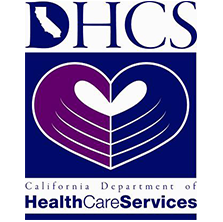Trauma casts a long shadow.
Whether it’s experienced as a child or as an adult, if trauma isn’t addressed and dealt with properly – if it’s allowed to linger in perpetuity – it can slowly eat away at a person.
In some cases that manifests in a substance use disorder where drugs and/or alcohol are used to escape the torment if only momentarily.
In that respect, it would make sense why PTSD and addiction are so enmeshed with one another.
As per the Department of Veterans Affairs (VA), “according to one national epidemiologic study, 46.4% of individuals with lifetime PTSD also met criteria for SUD”.
Another study puts it more candidly, “post-traumatic stress disorder (PTSD) and substance use disorders (SUDs) are prevalent and frequently co-occur”. Period. Point blank.
What Is PTSD?
PTSD, or post-traumatic stress disorder, is a condition that develops in those who’ve gone through some type of terrifying, shocking, intense or dangerous experience.
The National Institute on Mental Health (NIMH) notes that “events that may lead to PTSD include, but are not limited to, violent personal assaults, natural or human-caused disasters, accidents, combat, and other forms of violence”.
The criterion for diagnosis according to the NIMH is having all of these occur for 1 month or more:
What Is PTSD?
- At least one re-experiencing symptom
- At least one avoidance symptom
- At least two arousal and reactivity symptoms
- At least two cognition and mood symptoms
What Is Addiction?
Addiction, or a substance use disorder, is characterized by the National Institute on Drug Abuse (NIDA) as “a chronic, relapsing disorder characterized by compulsive drug seeking and use despite adverse consequences. It is considered a brain disorder because it involves functional changes to brain circuits involved in reward, stress, and self-control. Those changes may last a long time after a person has stopped taking drugs”.
Drug abuse has been a nationwide issue for ages with opioids understandably being in the spotlight in the last couple of decades.
Deaths from drug overdoses in only 2019 were just north of 70,000 per NIDA.
Why PTSD and Addiction Are Connected
Carrying the weight of PTSD is too heavy for some to bear and substances seem to offer a temporary solution. A way to get away from trauma. To get some distance. Some version of breathing room.
When addiction and mental disorders happen together it’s known as a dual diagnosis or a co-occurring disorder.
NIDA points out that “multiple national population surveys have found that about half of those who experience a mental illness during their lives will also experience a substance use disorder and vice versa”. Similar to what the VA found concerning PTSD specifically.
They add, “data show high rates of comorbid substance use disorders and anxiety disorders—which include generalized anxiety disorder, panic disorder, and post-traumatic stress disorder”.
Co-occurring disorders feed off each other, amplifying one another. That’s especially true for PTSD where encountering a trigger while under the influence, for example, could lead to larger doses or drinking more and ultimately into some potentially dangerous places.
How to Get Help With PTSD and Addiction
The way to give yourself or a loved one the best shot at beating both demons is to treat them both.
If you go to rehab for substance abuse but don’t touch the underlying trauma that feeds it, you’re essentially setting yourself up for a relapse. Without dedicated attention from therapists, psychiatrists and counselors to help you work through the trauma and truly heal, you run the risk of going right back to substances.
At Safe Harbor, in addition to the various evidence-based and holistic therapies available to you, we offer specific therapy for trauma and PTSD known as psychodrama therapy.
To learn more about how we can help you, send us a message or give us a call.




